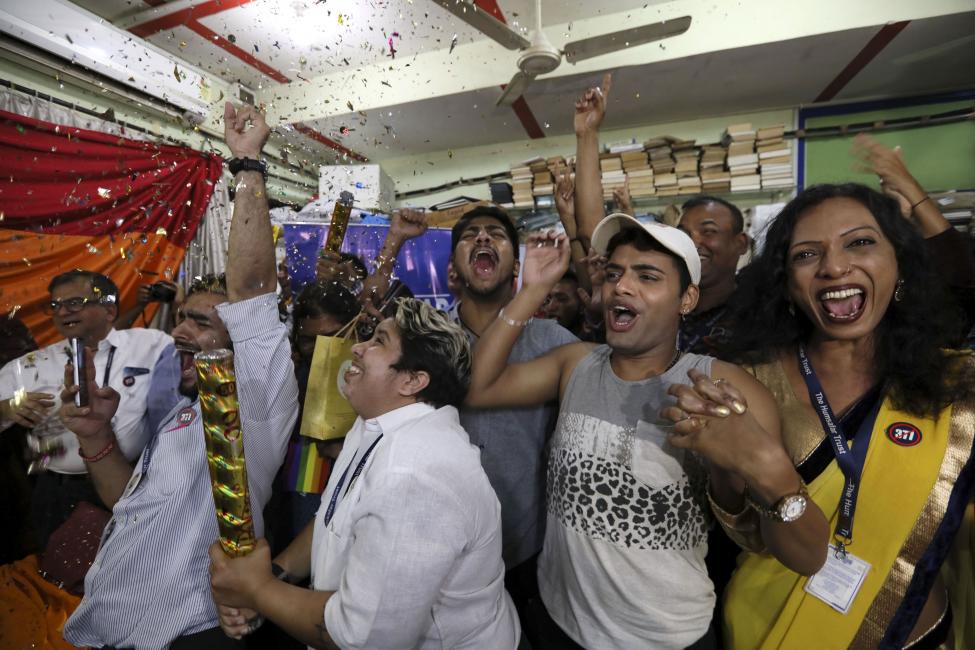The Supreme Court of India issued a historic ruling Thursday by decriminalizing same-sex relations -- in a reversal of law that was imposed just five years ago.
The high court had re-criminalized consensual sexual relations for same-sex partners in 2013 based on a colonial-era law -- Section 377 of the Indian penal code that made same-sex relationship an "unnatural offense" punishable by 10 years in jail.
Thursday, justices called the law "irrational," "arbitrary" and "incomprehensible," and ruled on the issue after hearing petitions that challenged its legality.
"Any discrimination on the basis of sexual orientation violates fundamental rights," Chief Justice Dipak Misra, head of the five-judge panel, said in Thursday's ruling.
"The constitution is a living organic document ... pragmatic interpretation has to be given to combat rigorous inequality and injustice. Social morality cannot be used to violate the fundamental rights of even a single individual. Constitutional morality cannot be martyred at the altar of social morality."
"We become equal citizens," petitioner Ashok Row Kavi said as activists celebrated in the street. "Equal rights are accessible for us with this decriminalization."
India's ruling Bharatiya Janata Party said it would leave the issue to "the wisdom of the court."
Lawmaker Shashi Tharoor, of the Indian National Congress Party, praised the decision.
"So pleased to learn that the Supreme Court has ruled against criminalizing sexual acts in private," she said, noting the ruling enforces "privacy, dignity and constitutional freedoms."
Activists had argued Section 377 was used to target and harass the LGBT community.
Thursday's ruling was hailed by the United Nations, which said the previous law allowed for "egregious" violations of human rights.
"LGBTI persons across the world continue to be the targets of violent attacks and are affected by multiple and intersecting forms of discrimination based on age, gender, ethnicity, disability and social status," the world body said in a statement, adding it "sincerely hopes that the court's ruling will be the first step towards guaranteeing the full range of fundamental rights."
Because China decriminalized same-sex relations more than two decades ago, India's ruling means the majority of Asians can no longer face prosecution for sexual identities.
"It is indeed a historic moment for India, the world's largest democracy and a global power on the rise. So the world is watching, and its neighbors are watching," said Lieu Anh Vu, Asia coordinator at the International Lesbian, Gay, Bisexual, Trans and Intersex Association.
"LGBTI communities in Sri Lanka, Pakistan and Bangladesh are also working to repeal similar remnant of British colonization in their own country and the ruling from India will feed into more dialogues, at least among LGBTI civil society across these countries."
By Sommer Brokaw
Fuente: www.upi.com
